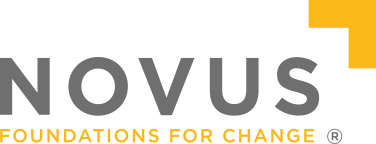Education to Prison Pipeline: How Poor Literacy Rates Lead to Higher Crime
Adult Provision English & Maths

At Novus we know that prison education and training can change lives, giving people the skills needed to rebuild their lives. But for many people, struggling with literacy can make everyday life difficult.
It can lead to frustration in school, fewer job opportunities, and, for lots of people, a higher chance of ending up in prison. This pattern is known as the school to prison pipeline, where poor literacy skills increase the risk of crime and reoffending.
But education can change that. Supporting young people early and providing learning opportunities in prison can help break the cycle, giving people a real chance at a better future.
In this article, we’ll discuss the education to prison pipeline, exploring why the cycle happens, and how prison learning can help to break it.
How low literacy increases the risk of incarceration
Having low abilities in literacy can increase the risk of going to prison in several ways:
Limited employment opportunities
Poor literacy skills can make it difficult for individuals to gain the qualifications and skills needed to find employment opportunities, resulting in them being unemployed. Without a job, people may turn to crime in order to support themselves financially.
Social exclusion and marginalisation
Having low literacy skills can often correlate with social exclusion, which can lead to feelings of frustration, low self-esteem, and isolation. Research by the National Literacy Trust shows that individuals with poor literacy skills are significantly more likely to experience poverty, live in poor quality housing, be unemployed, become a perpetrator or victim of crime and have poor physical and mental health. Individuals who feel isolated from society and their community become extremely vulnerable and are at risk of peer pressure and turning to a life of crime.
Higher school dropout rates
Children who struggle with reading and writing are more likely to disengage from school which can result in higher drop out and exclusion rates. Disengaging in education from an early age means that young people won’t be equipped with the skills and qualifications needed to go onto higher education and find employment opportunities as an adult, increasing the risk of offending.
Intergenerational cycle
Families with poor literacy rates often pass down these disadvantages to their children. The Adult Literacy Trust suggests that the long-term effect of a parents low literacy skills can have a substantial impact on their children, as the strongest indicator of a child’s academic success is their parents level of education.
Breaking the school to prison pipeline with early education
Research suggests that there could be strong link between raising the level of childhood literacy and lowering the risk of offending. Targeted literacy programmes in schools can support at-risk students, by helping to improve their literacy skills.
Literacy intervention programmes are structured initiatives designed to support children who struggle with reading, writing, and other literacy skills. These programmes aim to improve literacy levels, helping individuals to catch up to the expected standards and education level of their age.
Interventions like these are tailored to each student’s specific literacy challenges i.e., phonics, vocabulary, reading and comprehension. This targeted approach helps address skills gaps that general teaching might not cover.
Engaging children in literacy intervention programmes whilst in school, will help to keep them in school and improve their literacy. If more children are able to stay in school, they can gain the skills and qualifications needed to progress into higher education such as college and university and find employment as adults.
The importance of prison education in reducing reoffending
Whilst in prison, it’s crucial that we engage as many learners as possible in education, specifically our functional skills English, Maths and Digital provision. Literacy is an essential functional skill that everyone has the right to learn; without it, learners have a limited number of opportunities available to them.
Without having the basic fundamental skills to re-integrate into society, learners will find it difficult to find and obtain long-term employment which could result in reoffending. Research suggests that learners who receive an education whilst in prison are significantly less likely to reoffend within 12 months of release. By improving their confidence and ability in literacy, we help learners close their skills-gaps so they can find and retain employment upon release and become successfully rehabilitated.
Literacy Festival at HMP Low Newton
Recently, HMP Low Newton held a Literacy Festival with the aim to promote the reading strategy prison-wide, celebrate reading, creative writing and poetry, as well as bring together readers of all levels and raise awareness of the impact that reading and writing have on wellbeing.
The project was facilitated by collaborative working between Novus, HMPPS management, the Novus library, Novus and HMPPS Reading Champions, HMPPS Work Parties and the Novus Education Department. Each department worked together to bring new and innovative activities and opportunities to learners during the literacy festival and those who attended were provided with the opportunity to increase their reading engagement, whilst developing and improving their reading and writing skills.
To learn more about how we engage learners in our education provision, take a look at our news section.


